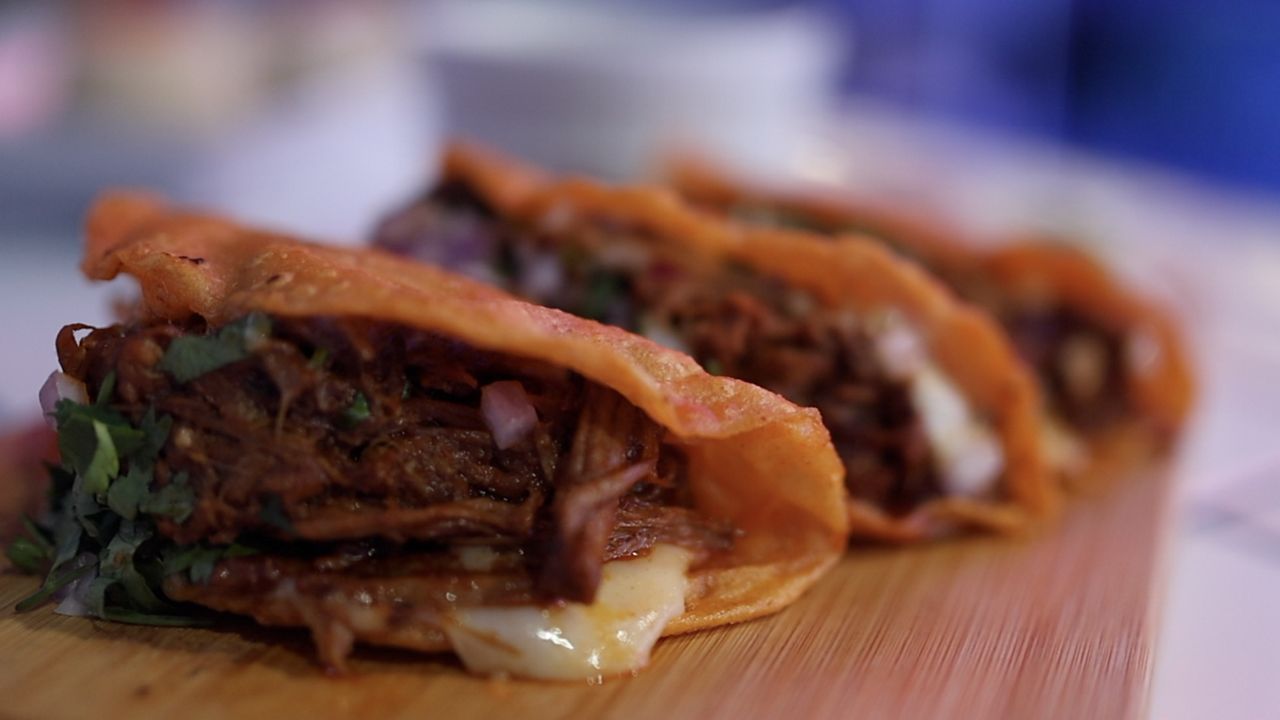SAN ANTONIO — Brian Beltran brings his mother’s recipes to life on the grill.
“Yeah, I first started out as a planchero,” Beltran said.
His mother is the chef of his family’s restaurant El Cevichero Restaurant y Cantina. Beltran says the menu features the dishes of his childhood: ceviche platter, aguachiles verdes and enchiladas suizas.
“It’s a blessing, It was a dream of hers. It was something we all knew she was good at,” Beltran said.
The business started when Beltran’s brother Abel Mota Jr. delivered ceviche to people during the pandemic.
“I think I helped him out once or twice deliver and then I saw, oh shoot, he’s serious about this,” Beltran said.
It evolved into El Cevichero food trucks in San Antonio to eventually in 2023 opening a brick and mortar on the city’s Southeast side.
Beltran says running a restaurant comes with a hefty price tag, especially with permit fees.
“The alcohol taxes, credit card fees, you can’t even put out a tent for shade. You have to pull out permits for that,” Beltran said.
They’re regulations restaurant owners sometimes don’t know about at first.
“We are just learning as we go,” Beltran said.
“If you want to operate a restaurant you got to get a food permit, you go to get your alcohol permit, then you got to get a permit for your soda fountain,” Kelsey Erickson of the Texas Restaurant Association said. “The you got to get a permit for heaters in your outdoor patio.”
It’s what Erickson calls permit stacking, where business owners are paying fees at the local level that they already paid for at the state level.
She says it’s common in Texas, where there are more than 200 health departments.
“It can create a lot of ambiguity and confusion and frankly extra costs for our restaurants,” Erickson said. “It can be hard to find what exactly are the rules that apply to me.”
However, Senate Bill 1008, which passed in September, is expected to save restaurant owners money and time. It requires health departments to post on their websites a 60-day notice when changes to permits, fees or inspections happen.
“If a restaurant is paying a the city or county for their food permit, if they are paying the state an alcohol permit, that should be it,” Erickson said. “They shouldn’t have to pay a local alcohol permit on top of everything.”
They’re changes, she says, that will save business owners thousands each year and will also invest back into the businesses.
“One thing that would help us in using that money, is giving back to the community,” Beltran said.

